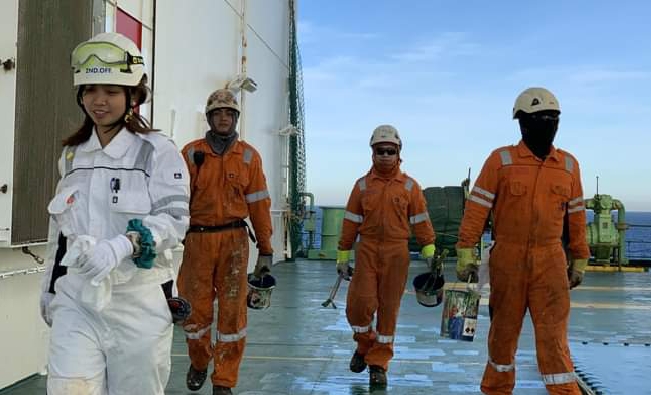The Philippines President Ferdinand Marcos Jr has finally signed the long-awaited Magna Carta of Filipino Seafarers designed to the protect the rights of ship’s crew from the country into law.
The President was expected to sign the Magna Carta of Filipino Seafarers into law on 26 Feb but delayed at last moment enshrines the provisions of the Maritime Labour Convention into Philippines national law.
The Magna Carta of Filipino Seafarers was expected to be signed on into law by the President on 26 February this year, but it was pulled at the last moment despite having been classified as urgent.
Since the delay in signing bill on 26 February the Bill has been redrafted on multiple occasions, with controversies around a number of provisions, such as the inclusion of maritime training and the provision of payment of bond by Filipino seafarer before monies in disabilities cases are paid out.
A bicameral conference committee report on the Magna Carta of Filipino Seafarers was approved by congress on a second occasion on 29 July and a third on 31 July.
Speaking after signing the bill into law on Monday morning President Marcos Jr, said, “This administration also extends its gratitude to all stakeholders who share their insights to make this law even more comprehensive. Our different perspectives helped us produce this Magna Carta that encompasses our shared goal to make Filipino seafarers, the industry and the country, prosper, both in domestic and international waters.
“At its core, this new law aims to uphold the fundamental rights of our overseas seafarers, their rights to fair wages, safe working conditions and skills and competency development amongst others,” he stated.
The Magna Carta enshrines into law the provisions of the Maritime Labour Convention (MLC2006) for the world’s largest provider of crew to the international shipping industry.
The Philippines President is looking beyond just compliance with the Bill. “Fair wages are not just about numbers on a pay cheque. They are about the dignity of being compensated fairly for one’s hard work and dedication,” he stated.
“Safe working conditions are not just about compliance. They are about ensuring that every overseas Seafarer who sets sail will come home safely.
“Skills development is not just a provision in the law. It is about upgrading their qualifications to promote career growth. It’s about providing them tools, training and support to become more competitive, both here and abroad.
“When we speak of protection, we speak of shielding our seafarers, not only from the perils of the sea, but from exploitation and discrimination that have too often been tolerated,” he added.
The Philippines has had long running issues over compliance with STCW (Standards on Training, Certification and Watchkeeping) particularly in relation to seafarers serving on EU-flagged vessels.
“Specifically, the Magna Carta will strengthen our legal framework to ensure that Filipino seafarers receive adequate training, secure contracts, just wages and fair benefits. This will seamlessly align with the standards for training certification and the watch keeping or STC w as well as the accepted global maritime labour laws,” he said.
“By creating a more robust certification process, we ensure that our seafarers are not just compliant, but exceptional and equipped to meet the demands of an evolving maritime industry.”
President Marcos Jr also highlighted the dangers the country’s seafarers face currently with attacks on commercial shipping in the Red Sea by the Houthi in Yemen.
“Behind every voyage lies a reality we as a nation have too often overlooked long way away from their homes and their families, the weight of isolation of unpredictable conditions count as threats to their safety and their security, especially this past year, with what is happening around the world.
“In the Red Sea, cargo ships and tankers traveling along that route have been attacked with missiles and with gunboats. Last month, it happened once again with the Greek oil tanker. And these are not just occupational hazards, they are actual human experiences. So, today’s signing of the Magna Carta of Filipino seafarers is our collective acknowledgement of these sacrifices.”




Comments are closed.